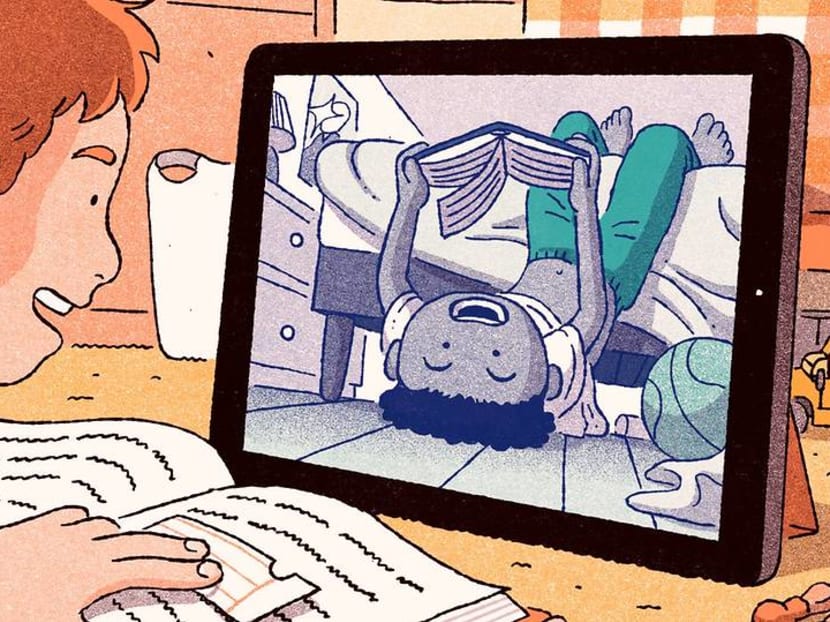Parents, there's an upside to giving your kids more screen time – they get creative
While the debate continues about the effects of children being constantly online, they might also become more fluent in the technology they need for the future.

(Art: Tim Peacock via The New York Times)
My eight-year-old daughter started writing stories this year in Google Docs. They are thousands of words long, and my favorite one includes both a full brisket recipe and a murder mystery. She experiments with fonts and thinks about the plot even when she’s away from the computer.
I don’t think she would be doing any of this if not for our virtual pandemic year.
Although I don’t want to sugarcoat the experience, there are upsides to online life, and some experts agree.
READ: There’s no easy fix for children’s weight gain, but blame is not the solution
With the caveat that there is no reliable research on long-term outcomes of this grand experiment, one positive outcome is that our children may be more fluent, earlier, in the technology they need for the 21st century.
“We all live our lives digitally, so we want these normal academic skills to be contextualised through a digital framework,” said Jordan Shapiro, an assistant professor at Temple University in Philadelphia.
What this tech fluency means is not just that children are able to lead a videoconference by the time they’re eight years old. It also means that they may be able to pick up on social cues online and the nuances of texted communication in ways adults are just adjusting to now.
“I have the attitude of, ‘What can we learn from this?’” said Dr Jenny Radesky, an assistant professor of pediatrics at the University of Michigan’s CS Mott Children’s Hospital.
Parents should “be open to the possibility that your kid may do something really fun or creative or unexpected that you can talk to them about,” she said.
You can use parental controls to prevent your kids from accessing inappropriate sites and content. But the most important thing to remember is to keep the lines of communication open with your children about what they see and do online.
READ: How to escape the boredom trap: Parents, reframe your child's thinking
Dr Radesky said there are two things to look out for to help your children have a positive digital experience: Connection and creativity. Video chats are ideal for connection, which children really need if they are not seeing friends in person.
As for creativity, look for fairly blank canvases that allow your children room to experiment and play – my kid’s writing is a great example, Dr Radesky said.
By Jessica Grose © 2021 The New York Times




